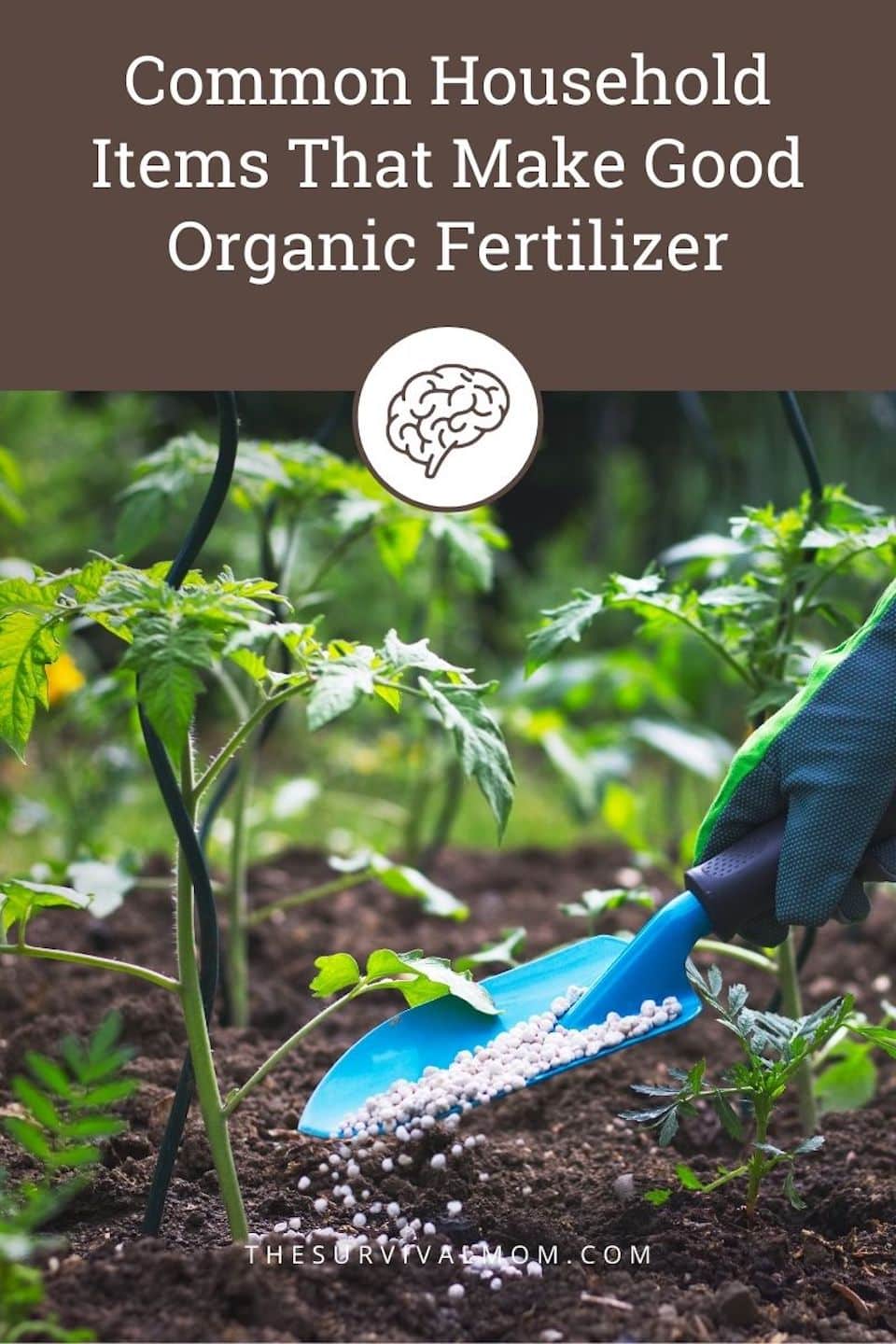Some plants thrive on neglect, needing just a little bit of light and maybe a dash or two of water every now and then. But if you want to see your plants — everything from herbs to veggies to houseplants — really flourish, then you’ll want to add plant fertilizer to your routine.

Plant food plays an essential role in prepping your garden beds for winter or gearing up for spring planting. Of course, fertilizing your garden is a good move, but those made from synthetic chemicals have many adverse side effects. Fortunately, many common household materials are also helpful as organic fertilizer.
Organic gardening is a good move. And if fertilizers are ever in short supply or outrageously priced, you’ll have some readily available options from around the house you can use instead.

Why is fertilizer necessary?
Dead soil equals dead plants.
On the other hand, living soil is full of nutrients and organisms integral to garden health.
Plants need certain nutrients to live and grow. To get these nutrients, they take them out of the soil. As a result, nutrients in the soil are depleted and must be replaced somehow.
Companion planting and crop rotation are two ways to replenish nutrient-depleted soil. Fertilizer is another.
What nutrients are needed in the soil for plant growth?
There are three main groups of nutrients that healthy garden plants need in the soil:
If a plant doesn’t receive these nutrients in the amounts they need, it won’t reach its full potential and may even die. So for your garden plants to be their best, a steady supply of plant food is a must.
Continue reading, What nutrients does MY soil need? from The Survival Mom here. See her other featured posts here.
The Women's Outdoor News, aka The WON, features news, reviews and stories about women who are shooting, hunting, fishing and actively engaging in outdoor adventure. This publication is for women, by women. View all posts by The WON